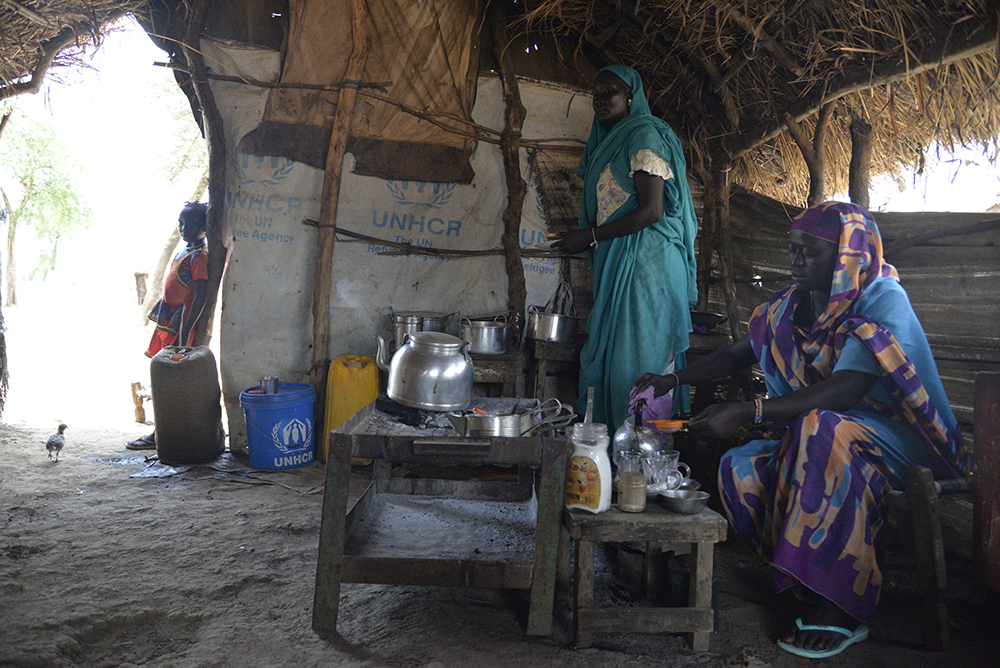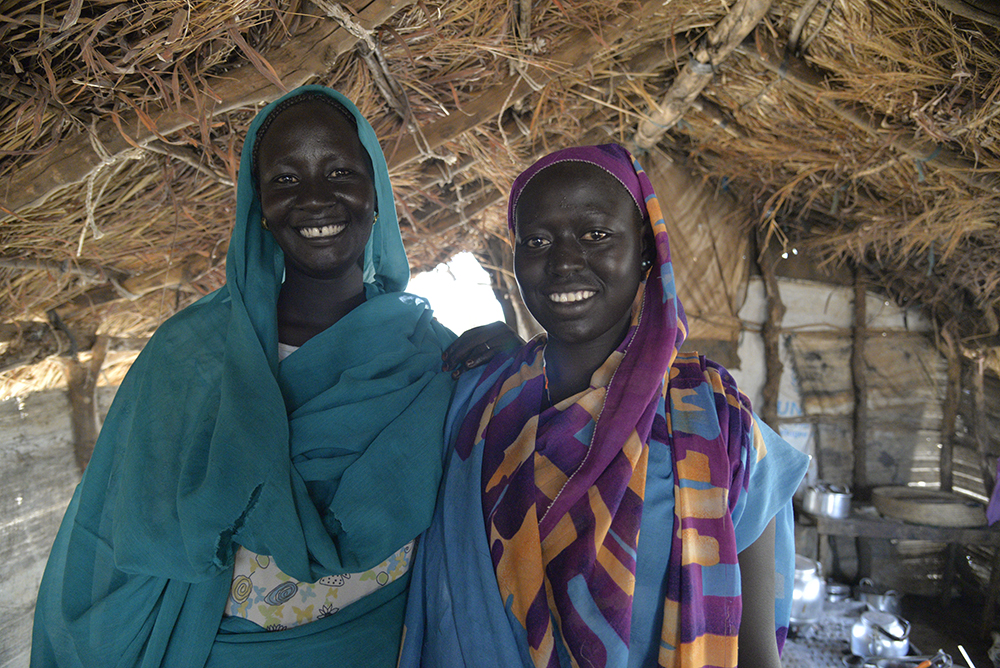Atoma dreams of opening a restaurant with her daughter Noura.
She fled violence in Sudan for 5 days.
Atoma, 37 years old: “I’m from Blue Nile, Sudan. I had to flee my hometown after bombs fell on my village. I had no choice but to run with my children. After five days of walking, we made it across the border into South Sudan. Right now, I live in Gendrassa refugee camp and I own a small hut where I sell food. After I came here, I was sitting idle because I did not have the resources to work. I was a farmer back home. I was only waiting for monthly food ration from UNHCR. Then I realized that I could cook – my mother taught me how to cook since I was little.”
“When I realized I could cook, I opened a small Sudanese restaurant. My mother taught me how to prepare food since I was a child. Most of my clients are NGO workers. They love my food and that makes me happy. I feel like I have become a Sudanese food ambassador. As my mother did to me, I am now teaching my daughter, Noura, the kitchen secrets. I hope we can open a bigger restaurant one day.”
Atoma is 37 years old and a refugee in South Sudan since September 2011. She fled her village in Sudan’s Blue Nile State as bombs were falling near her home. “I had no choice but running with my children. After walking for five days, we made it across the border into South Sudan.” She now lives in Gendrassa, the smallest of four refugee camps in Upper Nile –which alone hosts more than 134,000 Sudanese refugees. “When I arrived here, I didn’t know what to do. I had no resources to provide for my family. Back home was different. I was a farmer and my family’s livelihoods depended entirely on agriculture.”
Atoma soon realized that sitting idle at home and waiting for someone else to help was not the way to meet her family’s basic needs. “Opening a restaurant changed my life. Cooking reminds me of my mother. I haven’t heard from her since we left Blue Nile. She refused to come with me and decided to stay behind to protect our land. She said she would join us soon, but she never did…I hope she is still alive. I would love her to see me cooking Sudanese food the way she taught me.” When she is way from her kitchen, Atoma likes to help other women overcome daily challenges. She helps her friends build their shelter and lends her kitchen utensils to women willing to start the same business as her. So far, she supported three young mothers to open a restaurant next to hers. “Food…that’s my secret to keep my family happy.”
Written by Eujin Byun
Show your solidarity with refugees like Atoma by signing the #WithRefugees petition today.
Did you like Atoma’s story? Share it with your friends!
South Sudan is currently hosting more than 266,000 refugees and another 1.69 million internally displaced people. Over 90 percent of refugees are from Sudan. Like Atoma, most were driven from their homes due to the war between government and opposition forces in South Kordofan and Blue Nile regions.
Nearly five years into the conflict, the outflow of Sudanese refugees continues. One of UNHCR’s key priorities in South Sudan is to improve the living conditions of refugees in the camps; building better shelters for families; ensuring high standards in health care, education, water and hygiene; and helping men and women become more self-sufficient. UNHCR also strives to protect the most vulnerable refugees, such as unaccompanied minors and separated children, pregnant and lactating mothers, disabled people and the elderly.
More stories
Mercedes and her son fled extreme violence in El Salvador.
She dreams of reuniting with her daughter and grandchildren .
Tinalbarka fled violence in Mali.
She dreams of becoming a lawyer.
Diego and his family fled the conflict in Colombia.
He dreams of getting his degree in mechanical engineering.







